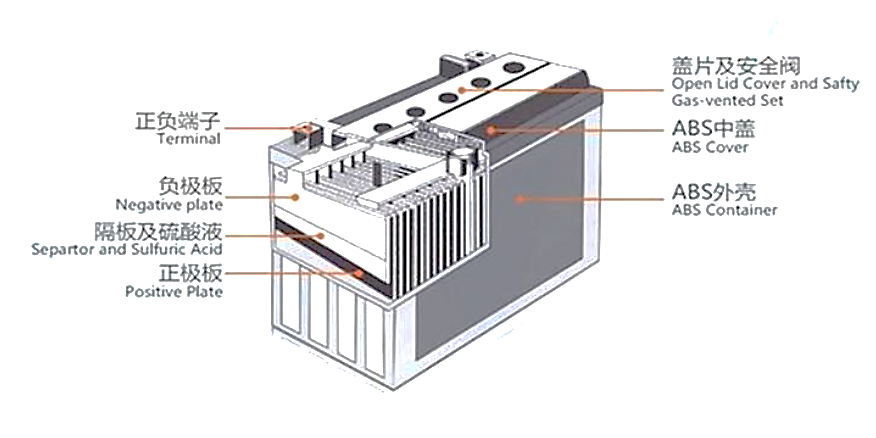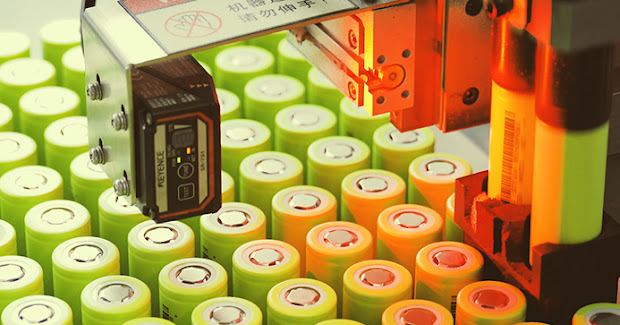Three types of UPS batteries, how much do you know?
Uninterruptible power supplies (UPS) use three primary types of batteries: Nickel-Cadmium, Lead-Acid, and Lithium-Ion, each with its own set of advantages and disadvantages. Let’s start with key characteristics of each battery technology.
Nickel-Cadmium (Ni-Cd) batteries:
Ni-Cd batteries have a long lifespan(about 20 years design life) and can withstand high temperatures without significant performance degradation, making them a good choice for applications that require high reliability and durability in extreme climate conditions. They also have inherent resistance to overcharging. This means they are less prone to damage caused by overcharging, reducing the risk of performance issues. However, Ni-Cd batteries are relatively expensive. What’s more, the disposal and recycling processes at the end of their service life are extremely costly and have environmental impacts due to the toxicity of nickel and cadmium.
Lead-Acid batteries:
Lead-Acid batteries have two different types: Valve Regulated Lead Acid(VRLA)and Flooded Lead Acid ( FLA)。
The electrolyte inside VRLA batteries is fixed in glass fiber or adsorbent, and the battery casing is sealed and no leakage. Because of this, they can be mounted either vertically or horizontally, so are suitable for use within battery compartments, rackmount trays or external cabinets. Compared to flooded lead-acid batteries, VRLA batteries have smaller size, lighter weight, longer service life, and lower maintenance requirements.

Flooded lead-acid batteries (FLA) have liquid electrolyte inside and require regular checks of the electrolyte level and the addition of distilled water as needed. FLA batteries are usually cheaper than VRLA batteries, but they require more frequent maintenance and longer flushing periods.
Lead-Acid batteries are a popular choice for UPS systems because they are relatively inexpensive, high energy density, and generally have a good reliability record. Especially in high-power applications, where weight is not the most important issue, lead-acid batteries often offer the most economical option. However, lead-acid batteries have a shorter lifespan than other battery and require regular maintenance to ensure optimal performance.
Lithium-Ion (Li-ion) batteries:
Lithium-ion batteries have long been used in electronic devices such as laptops and smartphones, but recently they are becoming an increasingly viable option for uninterruptible power supplies and other energy storage systems. The advantages of lithium-ion batteries include higher reliability than conventional VRLA/SLA batteries, as well as a built-in battery monitoring and management system that monitors and manages the performance of each cell. This allows for better control and early detection of any performance changes or issues, enhancing reliability. In addition, they can also be recharged quickly and last longer than lead-acid batteries, and they can endure a higher number of charge-discharge cycles before experiencing significant capacity degradation, resulting in a longer overall lifespan. Besides, Lithium-ion batteries are relatively environmentally friendly and can be recycled, promoting the development of clean energy and sustainable practices. However, Li-ion batteries are more expensive than other battery technologies. The initial investment for implementing Li-ion battery-based UPS systems may be higher, but the advantages in terms of performance, lifespan, and maintenance can offset this cost over time.
In summary, if you want a battery for a UPS, you should choose one based on the specific requirements of the application, including factors such as cost, reliability, energy density, lifetime and maintenance requirements. Further, if you need or consider lithium batteries for UPS, PLB can provide you with a customized UPS battery solution to meet your personalized needs. We specialize in the R&D and manufacturing of 26650 battery cells and PACK customized services for nearly 20 years, which definitely will offer great service and optimal solution.
Article source:"Three types of UPS batteries, how much do you know?"


评论
发表评论